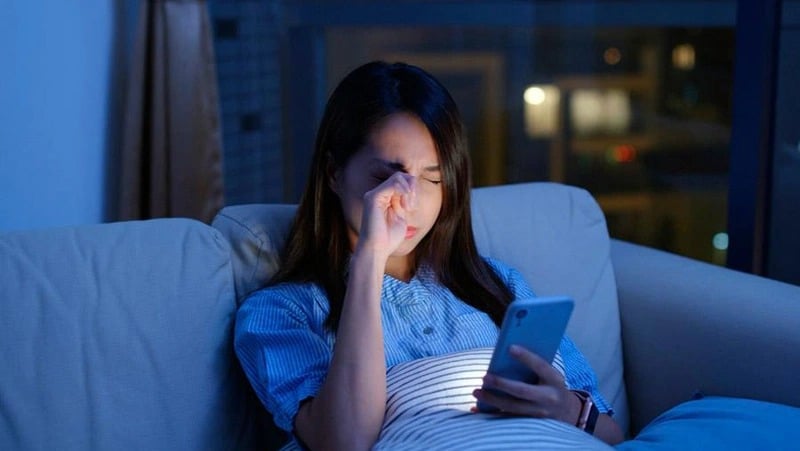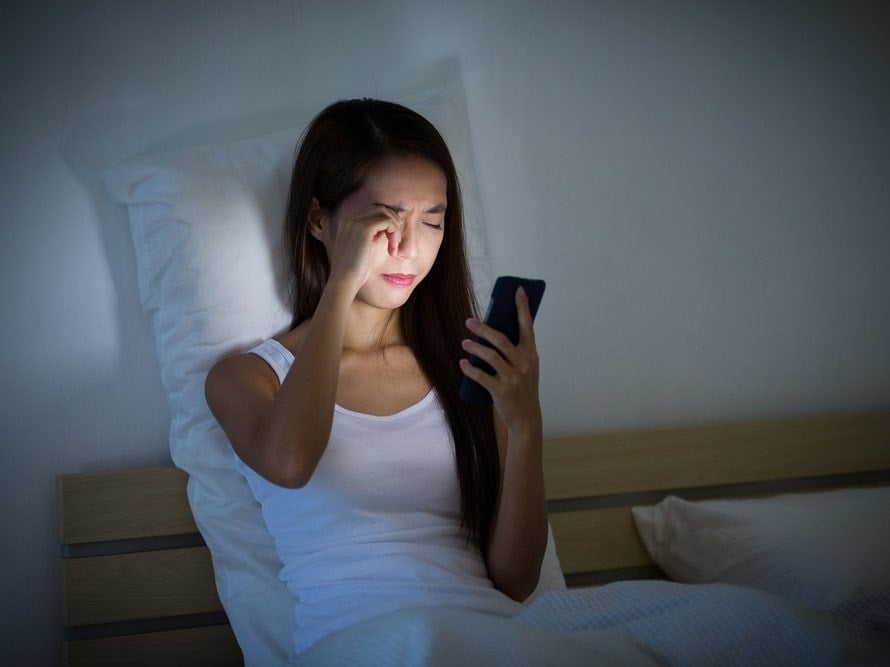Blue Light: A Health Hazard Hiding in Plain Sight
While adequate exposure to natural light during the day is essential for our health, strong light exposure at rest can disrupt melatonin production and even increase the risk of cancer.
According to the Vietnam Institute of Applied Medicine, cancer is the leading cause of morbidity and mortality worldwide among non-communicable diseases.
Numerous risk factors have been identified as cancer causes, and artificial light is an increasingly common one. Recent studies have indicated that light pollution at night, especially blue light, may be a carcinogenic agent.

Research shows that exposure to light at night decreases melatonin levels – a hormone that regulates sleep and possesses anti-cancer properties. This melatonin deficiency may increase the risk of breast cancer.
The International Agency for Research on Cancer (IARC) in the United States has classified night shift work, along with exposure to artificial light at night, as a probable carcinogen.
A crucial factor is blue light, with a wavelength of 440-495nm, similar to natural daylight. The human body is 25 times more sensitive to blue light than white light.
Exposure to blue light at night not only inhibits melatonin secretion but can also disrupt our biological clock, affecting sleep and causing severe health issues such as depression and diabetes.
Studies from the Harvard Medical School and Fred Hutchinson Cancer Research Center tracked over 10,000 individuals and found that those frequently exposed to blue light from mobile phones, computers, or LED lights in the evening had a higher risk of cancer than those less exposed to blue light.
How to Reduce Exposure to Blue Light at Night
Although many modern lamps emit blue light, there are ways to protect yourself from its potential adverse effects.
One simple method is to choose bulbs that don’t emit blue light in the evening, sleep in a dark environment, and minimize screen time on electronic devices like phones, TVs, and computers before bed.
Using blackout curtains or shades can also improve your sleep quality, especially if you’re sensitive to light and want to optimize your rest.

According to the Vietnam Institute of Applied Medicine, studies have established a link between blue light exposure and the risk of breast cancer. However, more research is needed to fully understand the extent of this association.
Factors such as genetic sensitivity, light exposure duration, and other lifestyle factors also contribute to the complex interaction between blue light and cancer development.
Therefore, maintaining a healthy lifestyle and undergoing regular health check-ups are crucial for early detection of potential risks and safeguarding your well-being.





































